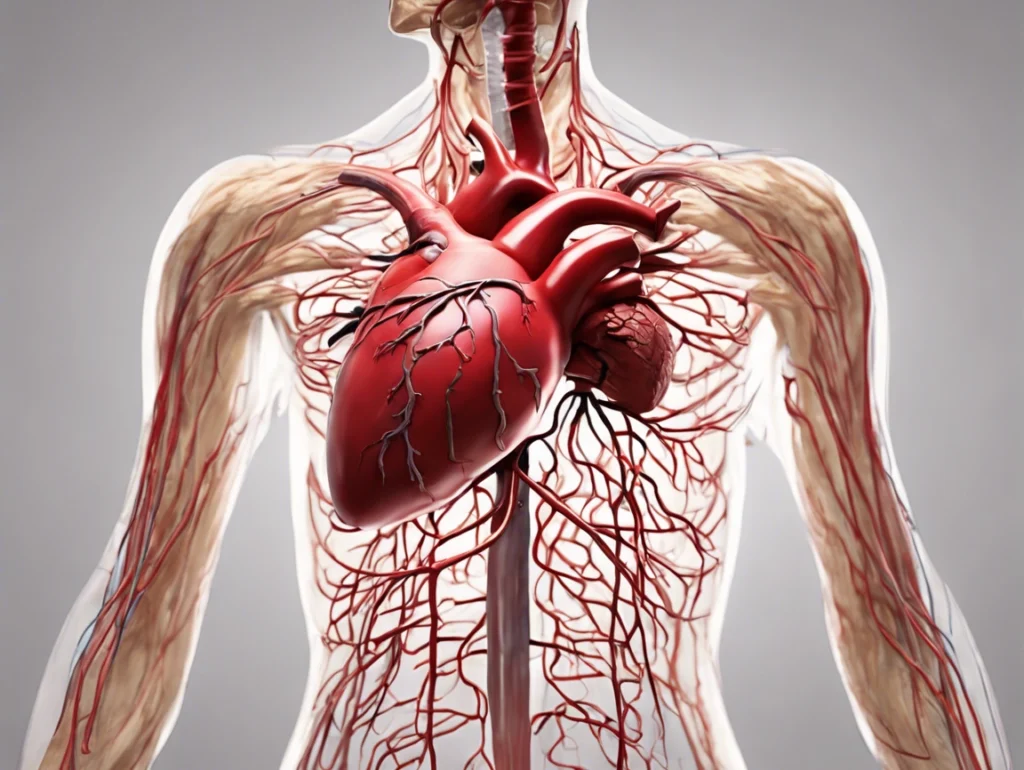The cardiovascular system is a cornerstone of our body’s functionality, but as we age, it undergoes several structural and functional changes. These changes can increase the risk of cardiovascular diseases such as hypertension, heart attacks, and strokes. Understanding these transformations and their impact is vital for managing heart health in later years.
Cardiovascular Changes with Ageing
Ageing brings about reduced flexibility in the cardiovascular system, leading to several noticeable effects:
| S.No | Noticeable Effect | Description |
|---|---|---|
| 1 | Reduced Mechanical and Contractile Efficiency | The heart’s ability to pump efficiently declines with age, making it harder to maintain optimal circulation during exertion. |
| 2 | Arterial and Venous Stiffening | Thickening of arterial walls and stiffening of veins increase resistance to blood flow, elevating systolic blood pressure. |
| 3 | Increased Smooth Muscle Tone and Elastolytic Activity | The breakdown of elastic fibers and heightened smooth muscle tone contribute to vessel rigidity. |
| 4 | Elevated Preload and Afterload | The increased workload on the heart leads to compensatory mechanisms like left ventricular hypertrophy, impacting heart function. |
| 5 | Cardiac Hypertrophy | An enlargement of the heart’s muscle can cause diastolic dysfunction, reducing the heart’s ability to relax and fill properly. |
| 6 | Changes in Hormonal Regulation | Decreased plasma renin and aldosterone activity affects the body’s ability to adapt to changes in posture or sodium intake. |
| 7 | Conduction Defects and Rhythm Disturbances | Ageing raises the risk of atrial fibrillation and other rhythm irregularities due to changes in electrical conduction pathways. |
| 8 | Decline in Stroke Volume and Cardiac Output | The heart’s capacity to pump blood efficiently, especially during exercise, diminishes over time. |
Risks of Age-Related Cardiovascular Changes
These physiological changes significantly increase the likelihood of developing cardiovascular conditions:
- Hypertension: Elevated systolic pressures from stiffened arteries.
- Heart Failure: Reduced cardiac efficiency and diastolic dysfunction.
- Atrial Fibrillation: A common rhythm disorder in older adults.
- Stroke: Increased arterial stiffness and hypertension are major contributors
Prevention and Management Tips
- Healthy Diet: Consume heart-friendly foods rich in fiber, potassium, and omega-3 fatty acids.
- Regular Exercise: Moderate aerobic activity strengthens the heart and improves circulation.
- Stress Management: Practices like yoga and meditation can reduce stress on the cardiovascular system.
- Routine Checkups: Regular monitoring of blood pressure, cholesterol, and heart rhythm.
- Medication Compliance: Follow prescribed treatments for hypertension or other conditions.
FAQs on Ageing and the Cardiovascular System
The cardiovascular system loses flexibility, arterial walls thicken, veins stiffen, and the heart’s pumping efficiency declines. These changes increase the risk of hypertension, cardiac hypertrophy, and rhythm disturbances.
Systolic blood pressure rises due to stiffening of arterial walls and increased vascular resistance, which makes it harder for the heart to pump blood.
The heart muscle may enlarge (cardiac hypertrophy), leading to reduced diastolic function. This makes it harder for the heart to relax and fill with blood.
Common conditions include hypertension, atrial fibrillation, heart failure, and stroke.
Yes, regular exercise improves heart efficiency, lowers blood pressure, and enhances circulation, helping to counteract age-related cardiovascular changes.



